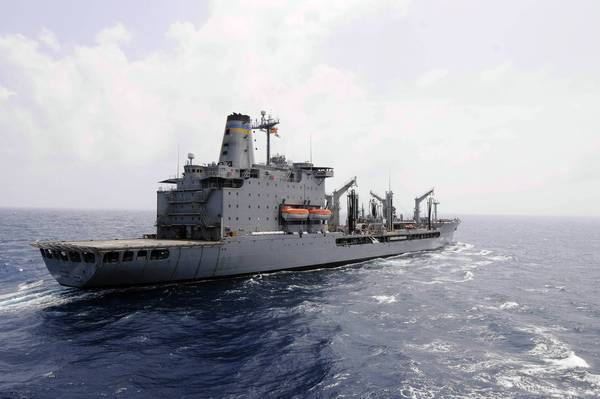 Image: The Rappahannock, which refuels warships, had just passed through the Strait of Hormuz when a fishing boat started to approach it. The supply ship fired on the craft, killing one and injuring three. (Cale Hatch / U.S. Navy / March 21, 2012)
Image: The Rappahannock, which refuels warships, had just passed through the Strait of Hormuz when a fishing boat started to approach it. The supply ship fired on the craft, killing one and injuring three. (Cale Hatch / U.S. Navy / March 21, 2012)
latimes.com - David S. Cloud - July 16th, 2012
Fearful of a terrorist attack, a U.S. Navy fuel resupply ship that had just passed through the Strait of Hormuz in the Persian Gulf opened fire at a 50-foot fishing boat moving toward it, killing one person and wounding three, U.S. officials said.
A security team aboard the Rappahannock, which refuels warships, fired a .50-caliber machine gun Monday after the smaller boat "disregarded warnings and rapidly approached" about 10 miles off Jebel Ali port in Dubai, United Arab Emirates, according to the Navy's 5th Fleet, which is based in neighboring Bahrain.
Recent Comments